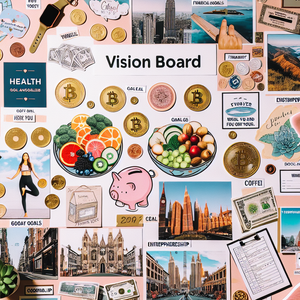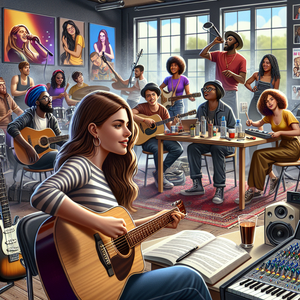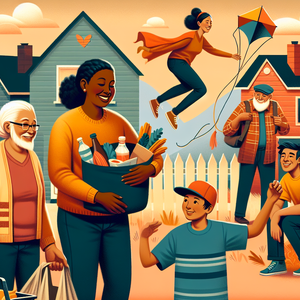The Impact of Taylor Swift's Activism on the Music Industry

Taylor Swift's journey as an activist has been gradual yet profound. Initially known for her sweet melodies and love songs, her public persona took a decisive turn in 2016 with the escalation of her social media presence and more open discussions about political and social issues. The turning point came with the 2018 midterm elections. In an Instagram post that garnered widespread attention, Swift urged her followers to vote, endorsing candidates who support LGBTQ+ rights and advocating for equality. This bold move marked a departure from her previous reluctance to share her political views, showcasing her commitment to using her platform for activism.
LGBTQ+ Advocacy and Representation
One of the most significant aspects of Swift's activism has been her unwavering support for the LGBTQ+ community. Her song "You Need to Calm Down," released in 2019, serves as an anthem against homophobia and discrimination. The accompanying music video featured numerous LGBTQ+ celebrities, sending a powerful message about acceptance and love. Swift's vocal support for the Equality Act and her public condemnation of anti-LGBTQ+ legislation have not only resonated with her fans but have also encouraged other artists to speak out on similar issues. Moreover, Swift’s presence at events such as the 2019 Stonewall Inn anniversary celebration further solidified her role as an ally. By aligning herself with significant LGBTQ+ milestones, she demonstrated how artists can leverage their influence to champion causes that matter. This has inspired other musicians to be more vocal about their support for LGBTQ+ rights, creating a more inclusive environment within the industry.
Political Engagement and Activism
Swift's activism extends beyond LGBTQ+ rights into the realm of political engagement. Her open criticism of the Trump administration and her calls for voter registration and participation have galvanized her fanbase, particularly younger voters. In the lead-up to the 2020 presidential election, she used her platform to encourage her followers to educate themselves on issues and engage in the electoral process. This initiative, coupled with her endorsement of Joe Biden, underscored the importance of political discourse in her career and prompted many of her fans to become more politically active. Moreover, Swift's refusal to remain apolitical in a polarized climate has encouraged a culture of responsibility among artists. Her willingness to stand up for her beliefs has inspired others in the music industry to use their platforms for social change, fostering a new generation of artist-activists who are willing to tackle difficult topics.
The Ripple Effect on the Music Industry
Swift's activism has not only impacted her fans but has also created a ripple effect throughout the music industry. As one of the most influential artists globally, her advocacy has prompted record labels and industry leaders to take notice of social issues. This shift has led to increased support for LGBTQ+ artists and initiatives, as well as a broader acceptance of outspoken political engagement within the music community. Additionally, Swift's activism has opened the door for discussions around mental health, body positivity, and women's rights. By embracing her platform, she has encouraged other artists to share their stories and advocate for the causes they believe in, creating a more inclusive and socially aware music industry. This newfound willingness to address various social issues has the potential to redefine what it means to be a successful artist in today's world, as social responsibility becomes an integral part of an artist's brand.
Taylor Swift's activism has undeniably reshaped the landscape of the music industry, demonstrating the profound impact that artists can have on social change. Through her unwavering support for LGBTQ+ rights, political engagement, and advocacy for various social issues, Swift has inspired her fans and fellow artists alike. Her journey from a country star to a powerful voice for activism exemplifies how music can serve as a catalyst for change. As Swift continues to evolve both as an artist and an activist, her influence will likely pave the way for a more inclusive, socially conscious music industry in the years to come. In a world where artists often feel pressured to remain apolitical, Swift stands as a testament to the power of using one's voice for good, encouraging others to follow in her footsteps.
Music Marketing Manager
Major record labels (e.g., Universal Music Group, Sony Music), Independent music labels and artist management agencies
Core Responsibilities
Develop and execute marketing campaigns for artists, ensuring alignment with social causes and community engagement.
Analyze market trends and consumer behavior to tailor promotional strategies that resonate with target audiences.
Required Skills
Experience in digital marketing and social media strategies, particularly within the music industry.
Strong understanding of brand positioning and the ability to connect music with social activism.
Social Media Coordinator for Nonprofit Organizations
Nonprofit organizations focused on social justice, LGBTQ+ rights, and community engagement, Advocacy groups and foundations
Core Responsibilities
Create and manage engaging content that raises awareness about social issues and promotes advocacy initiatives.
Monitor social media channels for community feedback and engagement, responding to inquiries and fostering online discussions.
Required Skills
Proficiency in social media platforms (Instagram, Twitter, TikTok) and analytics tools.
Excellent writing and communication skills, with a knack for storytelling to inspire action and engagement.
Artist Relations Manager
Record labels, artist management companies, and entertainment agencies
Core Responsibilities
Build and maintain relationships between artists and the record label, ensuring alignment on social initiatives and community outreach.
Organize events and partnerships that promote artist involvement in social causes, such as LGBTQ+ rights and political engagement.
Required Skills
Strong networking abilities and experience in event planning within the music industry.
Knowledge of social issues and the ability to facilitate meaningful conversations between artists and their audiences.
Public Relations Specialist in Music and Entertainment
PR firms specializing in entertainment, music labels, or independent artists
Core Responsibilities
Craft press releases and media strategies that highlight artists' activism and community involvement, enhancing their public image.
Liaise with media outlets to secure coverage of artists’ initiatives, events, and social campaigns.
Required Skills
Experience in public relations or communications, with a focus on the music or entertainment industry.
Strong interpersonal skills and a deep understanding of current social issues to effectively communicate artists' messages.
Activism Program Coordinator for Music Festivals
Music festival organizations, concert promoters, and cultural institutions focused on community engagement
Core Responsibilities
Design and implement programs that promote social causes during music festivals, including workshops, panels, and advocacy booths.
Collaborate with artists and speakers to create impactful experiences that educate attendees on social issues.
Required Skills
Experience in event planning and program coordination, particularly within the music or festival industry.
Passion for social justice issues and the ability to engage diverse audiences effectively.


